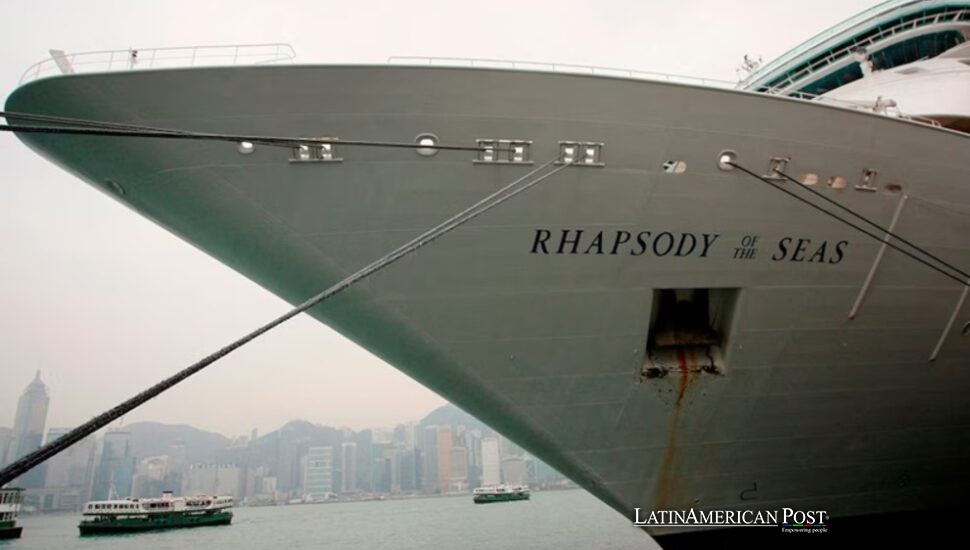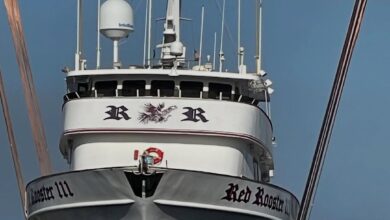Casino Debt, a Cruise Ship Leap, and Puerto Rico’s Morning of Shock

On a bright September morning, San Juan’s waterfront erupted in confusion: a man leapt from a docked cruise ship, was hauled from the sea by jet skiers, and landed in federal custody. Behind the spectacle lay gambling debts and undeclared cash.
A Leap That Stopped a Port in Its Tracks
The jump came just after breakfast, when passengers were shuffling down gangways and porters were loading luggage onto trolleys. At around 9:15 A.M. on September 7, witnesses say a passenger hurled himself from Royal Caribbean’s Rhapsody of the Seas as it idled at San Juan’s pier.
The ship towers twelve decks above the harbor. Authorities have not said which level the man, identified as Jey Gonzalez-Diaz, chose, but hundreds of onlookers on balconies and along the pier saw the commotion unfold. Two men on jet skis spotted the splash and moved in, circling close to the massive hull. They pulled Gonzalez-Diaz onto one of their watercraft and sped him ashore. By 9:45, Customs and Border Protection officers were waiting, ending a surreal half-hour that transformed a routine port call into front-page drama.
The leap quickly ricocheted across social media and cruise forums. Yet officials say the true beginning of the story was not in the harbor, but in the ship’s casino, where debts spiraled far beyond a vacation budget.
Debt, Cash, and a Rule Many Travelers Forget
When authorities searched Gonzalez-Diaz’s backpack, the contents raised even more questions. Inside were $14,600 in cash and a collection of documents: a U.S. passport, Social Security card, Puerto Rican birth certificate, Tennessee state ID, and a Royal Caribbean boarding card. Not all the names matched.
Questioned on the pier, he admitted he hadn’t declared the money because he “didn’t want to be taxed,” according to a federal complaint cited by The New York Times. That misunderstanding has snared many before him. U.S. law allows travelers to carry any amount of cash, but amounts over $10,000 must be declared. Failure to file is not a tax issue—it is a crime of nondisclosure.
Cruise line records suggest his financial trouble went deeper. Gonzalez-Diaz allegedly owed more than $16,700 to Royal Caribbean, much of it tied to casino gambling on the weeklong voyage. The company confirmed to the Times that he boarded in Puerto Rico on August 31 and said it is cooperating with investigators. His attorney did not respond to requests for comment.
The incident is a reminder of how casinos at sea create gray zones. Winnings and losses may feel separate from daily life while slot machines hum offshore, but the reckoning comes at the gangway, where federal jurisdiction resumes without sentiment.
Jurisdiction, Casinos, and the Perilous Gray Space at Sea
Cruise ships sail between worlds. One night, a passenger can gamble in a casino that flickers open only in international waters; the next morning, he steps into the reach of U.S. law. San Juan embodies that transition, welcoming ships daily but also acting as a federal checkpoint.
Against that backdrop, Gonzalez-Diaz’s leap underscores how quickly desperation can blur into danger. Going overboard is always perilous: currents, suction from propellers, and towering metal walls make survival uncertain. His survival was due to luck and the quick response of two strangers on jet skis, who were willing to steer dangerously close to a cruise ship’s hull.
For port officials, the episode echoed a familiar pattern—gambling losses on board, undeclared cash at disembarkation, and passengers unaware of the reporting rules. But few such cases ever involve a dive into open water in broad daylight. What began as private debt became a public spectacle, then a federal case.
Unanswered Questions and a Cautionary Tale in the Caribbean
Details remain unresolved. Authorities have not explained the mismatched identification documents or whether ship security had any warning before Gonzalez-Diaz jumped. Royal Caribbean has stayed quiet beyond confirming its cooperation with investigators. The criminal complaint outlines only the charge: attempting to evade monetary reporting requirements.
Still, the arc of the story is unmistakable: a leap that stunned a port, a rescue that turned bystanders into heroes, and a detention that carried the matter into courtrooms and ledgers. For San Juan, where cruise ship arrivals are usually measured in music, buskers, and tourist bustle, it was a sharp interruption of rhythm.
For passengers everywhere, the lesson is sobering. Declare your cash. Know the rules. Remember that casinos on the high seas do not shield anyone from U.S. law. What happens offshore is not erased onshore. And when a problem feels overwhelming, the answer is not to dive into the water.
Also Read: Lady Gaga and Tim Burton Turn Mexico City’s Island of the Dolls into Pop Gothic Legend
Two strangers on jet skis turned a dangerous leap into a rescue. The rest—the debts, the cash, and the legal reckoning—now belongs to the courts.

